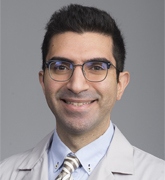Does resident autonomy in colectomy procedures result in inferior clinical outcomes? Journal Article
Local Library Link: Find It @ Loyola
| Authors: | Tonelli, CM; Lorenzo, I; Bunn, C; Kulshrestha, S; Agnew, SP; Abdelsattar, ZM; Luchette, FA; Baker, MS |
| Article Title: | Does resident autonomy in colectomy procedures result in inferior clinical outcomes? |
| Abstract: | BACKGROUND: The amount of time surgical trainees spend operating independently has been reduced by work-hour restrictions and shifts in the health care environment that impede autonomy. Few studies evaluate the association between clinical outcome and resident autonomy. METHODS: The Veterans Affairs Surgical Quality Improvement Program database was queried to identify patients undergoing partial colectomy for neoplasm between 2004 and 2019. Rectal resections, emergency procedures, and those involving postgraduate year 1 and 2 residents were excluded. Records were categorized as performed with the attending scrubbed or not scrubbed. Hierarchical logistic regression was used to identify factors independently associated with operative time, morbidity, and mortality. RESULTS: In total, 7,347 patients met inclusion criteria; 6,890 (93.6%) were categorized as attending scrubbed and 457 (6.4%) as attending not scrubbed. The cohorts were similar in terms of patient demographics, including age, race, body mass index, and American Society of Anesthesiologists class. There were no differences between cohorts in terms of operative time (attending not scrubbed 3.02 hours, attending scrubbed 3.07 hours, P = .42). On hierarchical logistic regression adjusted for age, gender, race, body mass index, functional status, cancer location, facility operative level, wound class, American Society of Anesthesiologists class, length of operation, operative modality (open or minimally invasive), postgraduate year of resident, and year, there were no differences in odds of complications, major morbidity, or mortality based on attending involvement. CONCLUSION: Colectomies performed by residents with appropriate levels of autonomy are efficient and safe. Our results indicate that attending surgeon judgment regarding resident autonomy is sound and that educational environments can be designed to foster resident independence and preserve clinical quality, safety, and efficiency. |
| Journal Title: | Surgery |
| ISSN: | 1532-7361; 0039-6060 |
| Publisher: | Unknown |
| Date Published: | 2021 |
LUC Authors
-
 51
51Luchette -
 66
66Baker -
 38
38Abdelsattar
Related LUC Article
